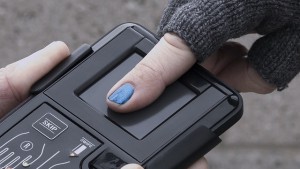Identification and biometric technology
The implementation of social protection schemes requires the correct identification of beneficiaries. In a growing number of countries, particularly in developing countries, biometric technology is increasingly used for the identification of beneficiaries of social protection programmes, including through fingerprints, iris and facial recognition. In most developed counties with better civil registration and national ID systems in place, the use of biometric technology is mainly limited to the area of law enforcement and security, but rarely to social protection. The proliferation of biometric technology raises some questions with regard to the realization of human rights, particularly with respect to the protection of personal data and privacy, non-discrimination, and the inclusion of vulnerable groups.
Appropriate legal frameworks and their effective enforcement are key to ensuring that identification procedures are applied in a way that respects and promotes human rights. In this regard, personal information should be kept private and free from misuse and should be collected only when necessary and only to the extent that is necessary and lawful. This further requires ensuring data is collected with the knowledge and consent of the subject, is accessible to the subject, and is accurate, complete and up-to-date. Access to this information should be clearly regulated and sharing of information strictly limited to exchanges necessary for the functioning of the system. Sound measures need to be put in place to ensure the security of the information stored and to prevent unauthorized access.
Photo credit: “Solutions for Society Biometrics- Creative Commons” by NEC Corporation of America (CCBY 2.0 via Flickr).

